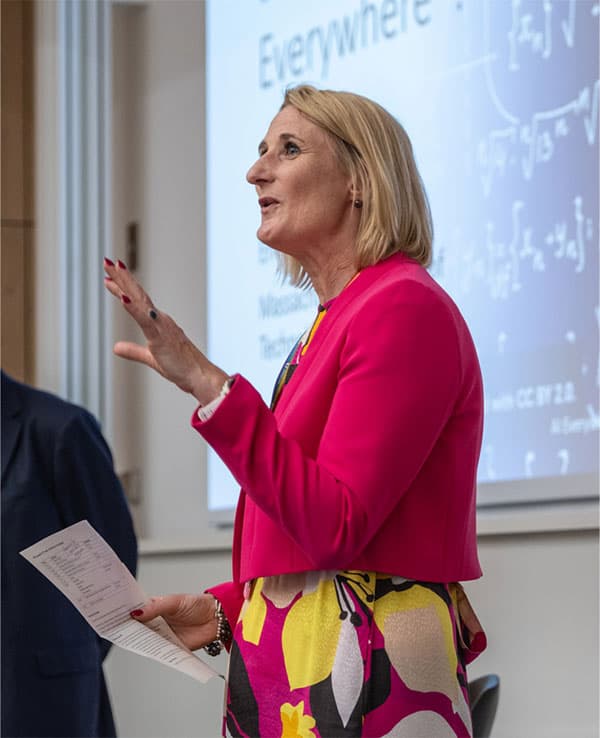Professor Jan Godsell, Dean of Loughborough Business School, will continue to co-direct the InterAct Network, alongside Professor Jill MacBryde, of the University of Strathclyde. This new phase of the Network’s development will focus on providing SMEs with the stepping stones to harness short-term resource and energy efficiency benefits offered by the adoption of new IDTs in manufacturing.
The InterAct Network was launched in November 2021, as part of UKRI’s £147m Made Smarter Innovation programme. InterAct’s long-term vision has been to build a vibrant interdisciplinary community that can support UK manufacturing in the adoption of IDTs to develop a stronger, more resilient, manufacturing base.
InterAct has proven distinct from many projects within the Made Smarter Innovation programme due to its focus on social science and the integral role of people in the process of technological innovation.
The Network has funded 51 projects over the course of three years, uncovering a range of ‘actionable human insights’ which continue to support the UK manufacturing sector’s drive for digitalisation.
The funding extension is designed to help amplify the impact of InterAct in three ways. Firstly, by providing further funding to InterAct projects that can be rapidly scaled or spun out. Secondly, by highlighting activities that support the rapid adoption of low-cost, low-risk IDTs by SMEs, and finally, through targeted high-impact research.
Professor Jan Godsell said: “When we set out on the journey to create the InterAct Network, we had high hopes for what we could accomplish, but the project has exceeded our expectations.
“With over 700 members, and partners from across the UK and global manufacturing sectors, InterAct has been a truly collaborative exercise in building a vision for a more sustainable, productive, and digitally enabled future.
“We’re delighted to receive this extension funding, which will allow us to accelerate the adoption and scale-up of IDTs by UK SMEs, improving their energy and resource efficiency, and export potential.”
Professor MacBryde added: “We’re excited to be continuing the fantastic work we’ve been involved in over the past three years, putting people back at the heart of the project to increase digitalisation in manufacturing. This is a huge step forward in achieving consistent recognition of human insight as a key component of technological progress.”
The most recent round of funding comes from the £37 million allocated in the government’s Autumn budget to the Made Smarter Innovation programme. The extension has been funded through an Innovate UK grant, in collaboration with the ESRC and EPSRC.

